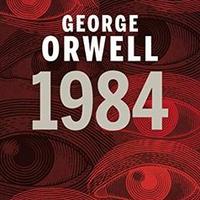Part three, Chapter 2 (4)
He also remembered Eurasia and Eastasia; but who was at war with whom he did not know. In fact he had not been aware that there was any war.
‘I don't remember.'
‘Oceania is at war with Eastasia. Do you remember that now?' ‘Yes.'
‘Oceania has always been at war with Eastasia. Since the beginning of your life, since the beginning of the Party, since the beginning of history, the war has continued without a break, always the same war. Do you remember that?'
‘Yes.'
‘Eleven years ago you created a legend about three men who had been condemned to death for treachery. You pretended that you had seen a piece of paper which proved them innocent. No such piece of paper ever existed. You invented it, and later you grew to believe in it. You remember now the very moment at which you first invented it. Do you remember that?'
‘Yes.'
‘Just now I held up the fingers of my hand to you. You saw five fingers. Do you remember that?'
‘Yes.'
O'Brien held up the fingers of his left hand, with the thumb concealed.
‘There are five fingers there. Do you see five fingers?' ‘Yes.'
And he did see them, for a fleeting instant, before the scenery of his mind changed. He saw five fingers, and there was no deformity. Then everything was normal again, and the old fear, the hatred, and the bewilderment came crowding back again. But there had been a moment — he did not know how long, thirty seconds, perhaps — of luminous certainty, when each new suggestion of O'Brien's had filled up a patch of emptiness and become absolute truth, and when two and two could have been three as easily as five, if that were what was needed. It had faded but before O'Brien had dropped his hand; but though he could not recapture it, he could remember it, as one remembers a vivid experience at some period of one's life when one was in effect a different person.
‘You see now,' said O'Brien, ‘that it is at any rate possible.' ‘Yes,' said Winston.
O'Brien stood up with a satisfied air. Over to his left Winston saw the man in the white coat break an ampoule and draw back the plunger of a syringe. O'Brien turned to Winston with a smile. In almost the old manner he resettled his spectacles on his nose.
‘Do you remember writing in your diary,' he said, ‘that it did not matter whether I was a friend or an enemy, since I was at least a person who understood you and could be talked to? You were right. I enjoy talking to you. Your mind appeals to me. It resembles my own mind except that you happen to be insane. Before we bring the session to an end you can ask me a few questions, if you choose.'
‘Any question I like?'
‘Anything.' He saw that Winston's eyes were upon the dial. ‘It is switched off. What is your first question?'
‘What have you done with Julia?' said Winston.
O'Brien smiled again. ‘She betrayed you, Winston. Immediately — unreservedly. I have seldom seen anyone come over to us so promptly. You would hardly recognize her if you saw her. All her rebelliousness, her deceit, her folly, her dirty- mindedness — everything has been burned out of her. It was a perfect conversion, a textbook case.'
‘You tortured her?'
O'Brien left this unanswered. ‘Next question,' he said. ‘Does Big Brother exist?'
‘Of course he exists. The Party exists. Big Brother is the embodiment of the Party.'
‘Does he exist in the same way as I exist?' ‘You do not exist,' said O'Brien.
Once again the sense of helplessness assailed him. He knew, or he could imagine, the arguments which proved his own nonexistence; but they were nonsense, they were only a play on words. Did not the statement, ‘You do not exist', contain a logical absurdity? But what use was it to say so? His mind shrivelled as he thought of the unanswerable, mad arguments with which O'Brien would demolish him.
‘I think I exist,' he said wearily. ‘I am conscious of my own identity. I was born and I shall die. I have arms and legs. I occupy a particular point in space. No other solid object can occupy the same point simultaneously. In that sense, does Big Brother exist?'
‘It is of no importance. He exists.' ‘Will Big Brother ever die?'
‘Of course not. How could he die? Next question.' ‘Does the Brotherhood exist?'
‘That, Winston, you will never know. If we choose to set you free when we have finished with you, and if you live to be ninety years old, still you will never learn whether the answer to that question is Yes or No. As long as you live it will be an unsolved riddle in your mind.'
Winston lay silent. His breast rose and fell a little faster. He still had not asked the question that had come into his mind the first. He had got to ask it, and yet it was as though his tongue would not utter it. There was a trace of amusement in O'Brien's face. Even his spectacles seemed to wear an ironical gleam. He knows, thought Winston suddenly, he knows what I am going to ask! At the thought the words burst out of him:
‘What is in Room 101?'
The expression on O'Brien's face did not change. He answered drily:
‘You know what is in Room 101, Winston. Everyone knows what is in Room 101.'
He raised a finger to the man in the white coat. Evidently the session was at an end. A needle jerked into Winston's arm. He sank almost instantly into deep sleep.

